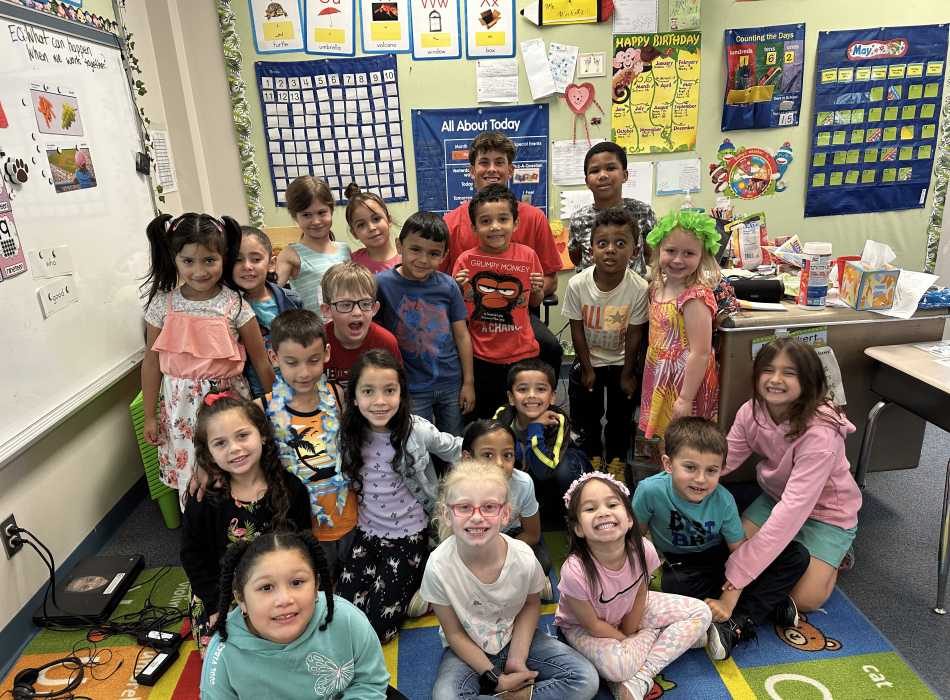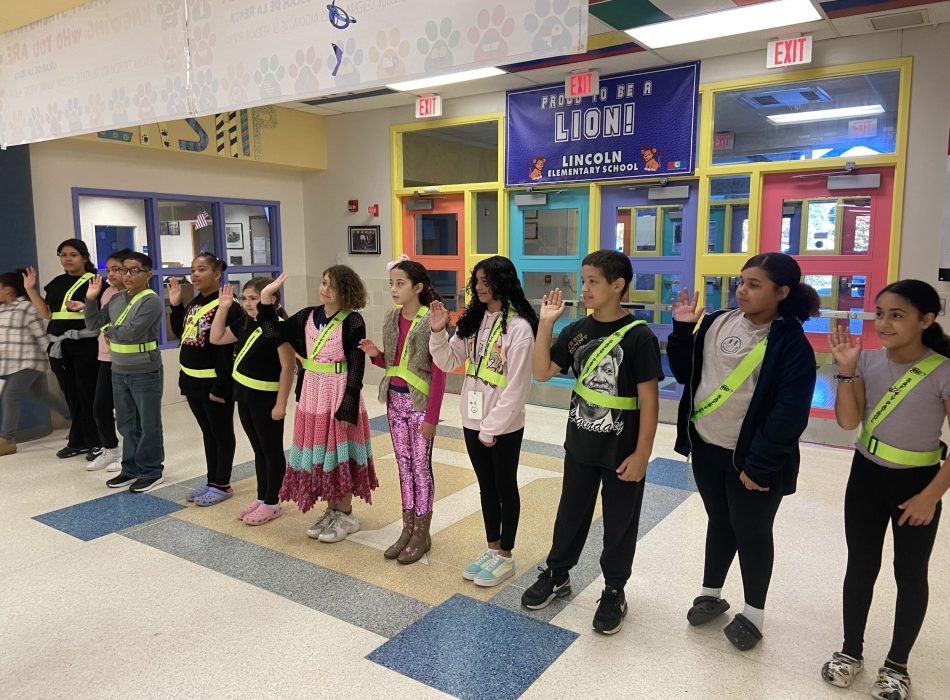Why a Grade School prepares students for high school challenges
Wiki Article
Exploring the Perks of Preschool Programs: A Comprehensive Overview to Very Early Education And Learning
Kindergarten programs play a critical duty fit a child's early academic experience. They provide an organized atmosphere where young students can create crucial social skills, psychological resilience, and cognitive abilities. These foundational abilities are important as children move into more official education. Recognizing exactly how these programs contribute to a youngster's development reveals much about their lasting academic trajectory. What particular advantages do these early experiences offer, and just how do they affect a youngster's future?The Significance of Social Abilities Advancement
While numerous facets of early education emphasis on academic abilities, the development of social abilities in kindergarten programs is just as vital. Social abilities encompass the capacity to communicate properly, collaborate with peers, and navigate social scenarios, every one of which are essential for a youngster's overall advancement. In preschool, youngsters learn to share, take turns, and fix problems, cultivating a sense of community and belonging. These experiences make it possible for young students to create and develop relationships empathy, laying the groundwork for favorable connections in the future.Educators play a crucial duty in helping with social skill growth via structured tasks and led communications. With team tasks and play, youngsters exercise essential skills such as listening, discussing, and recognizing diverse viewpoints. These communications assist children build self-confidence and self-confidence, essential components for their academic and individual journeys. On the whole, nurturing social abilities in preschool enhances children's experiences and prepares them for the complexities of social life beyond college.

Building Psychological Resilience in Young Learners
Building emotional strength in young learners is basic to their overall health and success in different aspects of life. Preschool programs provide an organized setting where kids can discover to browse their emotions effectively. With assisted interactions and activities, teachers aid kids identify and share their feelings, promoting a feeling of self-awareness.These programs usually include techniques for coping with obstacles, such as problem-solving activities and role-playing situations that prepare kids for real-life scenarios. By motivating cooperation and empathy, young learners develop solid social connections, which are essential for emotional support.
Teachers play a pivotal duty in modeling resilience by showing exactly how to take care of stress and difficulty. As kids observe these actions, they internalize important coping systems, furnishing them to deal with future psychological problems with greater convenience. On the whole, nurturing psychological durability in very early education and learning lays a solid structure for long-lasting psychological health and wellness and versatility.
Enhancing Cognitive Capabilities With Structured Discovering
As kids participate in organized learning experiences within preschool programs, their cognitive capabilities are substantially enhanced. These programs introduce age-appropriate tasks that boost essential reasoning and analytical abilities. For circumstances, hands-on activities such as puzzles and foundation promote spatial understanding and logical reasoning.In addition, interactive narration and seminar foster language advancement, expanding vocabulary and comprehension. Via organized routines, youngsters find out to adhere to directions, boosting their executive working skills, which are important for future scholastic success.
Social interactions within these programs additionally play a considerable role, as youngsters learn to team up and communicate successfully, more increasing cognitive growth.
In addition, integrating play-based learning permits children to explore principles in an enjoyable and engaging way, reinforcing their understanding and retention of knowledge. On the whole, structured discovering in preschool lays a strong foundation for cognitive growth, preparing youngsters for the challenges of greater education and learning.
Promoting a Love for Lifelong Knowing

In addition, favorable interactions with instructors and peers add to an environment where understanding is watched as satisfying and pleasurable. This supportive ambience helps instill inherent inspiration and reinforces the concept that education and learning is a constant trip instead than a destination.
dig this As youngsters find their strengths and passions, they are more probable to go after understanding beyond the class, laying the structure for a lifelong dedication to knowing. Eventually, preschool programs play an important duty in forming enthusiastic learners that embrace educational possibilities throughout their lives.
Preparing for Future Academic Success
While fundamental abilities are important for early students, preschool programs additionally play an essential function in preparing youngsters for future academic success. These programs present important ideas such as literacy and numeracy, assuring that kids establish the cognitive capabilities required for advanced learning. By involving in organized activities, students enhance vital reasoning and problem-solving abilities, laying a strong foundation for their educational journey.Kindergarten promotes social-emotional development, enabling youngsters to navigate joint tasks and build partnerships with peers. This collaborative environment instills a feeling of belonging and boosts self-confidence, which is important for academic perseverance.
Additionally, direct exposure to diverse knowing experiences in kindergarten grows versatility, equipping kids to tackle various topics and obstacles in subsequent qualities (Kindergarten). Ultimately, by supplying a well-rounded early education and learning, kindergarten programs guarantee that children are not just all set for first grade yet published here likewise planned for continued academic success throughout their educational careers
Regularly Asked Concerns
What Age Is Ideal for Starting Kindergarten Programs?
The ideal age for beginning preschool programs is typically between five and 6 years of ages. This age enables youngsters to establish vital social, psychological, and cognitive skills, preparing them for future scholastic success and personal growth.Exactly how Do I Pick the Right Kindergarten Program for My Child?
To pick the best preschool program, one need to think about factors such as educational program, teacher certifications, class size, area, and the college's philosophy. Observing the environment and gathering responses from other moms and dads can likewise be valuable.Are There Any Type Of State Demands for Kindergarten Enrollment?
Many states have specific needs for preschool registration, consisting of age restrictions and paperwork such as copyright or evidence of residency (Private School). Moms and dads should consult their neighborhood education and learning authority to recognize the exact check over here standards in their locationWhat Should Moms and dads Expect During a Normal Kindergarten Day?
During a normal preschool day, moms and dads can anticipate structured activities consisting of circle time, creative play, standard scholastic lessons, treat breaks, and social communication, all developed to foster learning and development in a nurturing setting.How Can Parents Support Understanding at Home along with Preschool?
Moms and dads can support discovering at home by participating in normal analysis, incorporating educational video games, establishing a regular routine, encouraging interest via questions, and producing a favorable, caring environment that fosters exploration and imagination.Preschool programs play an essential function in forming a child's early instructional experience. Preschool programs give an organized atmosphere where youngsters can discover to navigate their emotions successfully. As kids engage in structured knowing experiences within kindergarten programs, their cognitive capacities are substantially enhanced. By interesting youngsters in diverse activities-- such as storytelling, hands-on experiments, and collective tasks-- preschool programs grow interest and expedition. While fundamental skills are critical for early learners, preschool programs likewise play an essential duty in preparing children for future scholastic success.
Report this wiki page